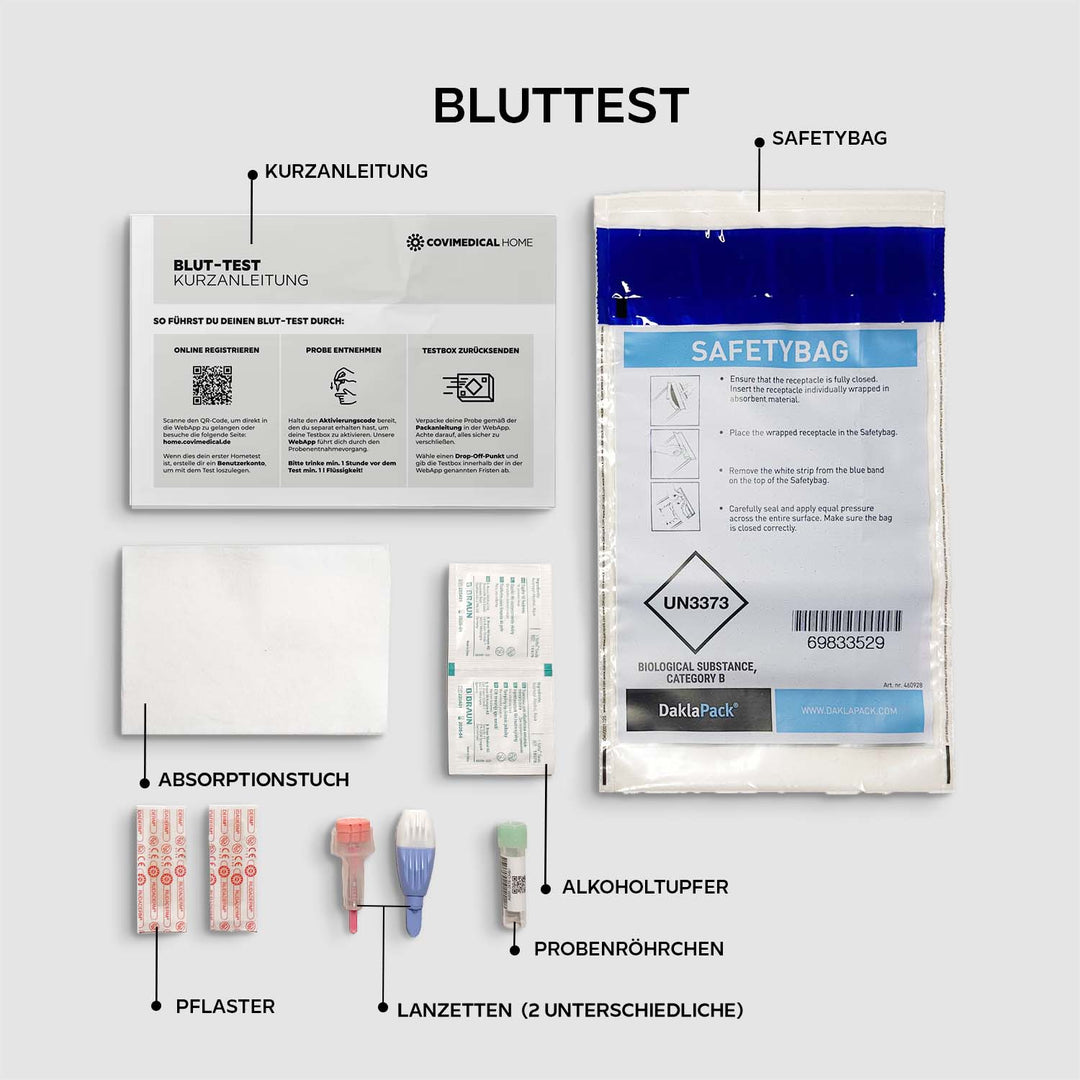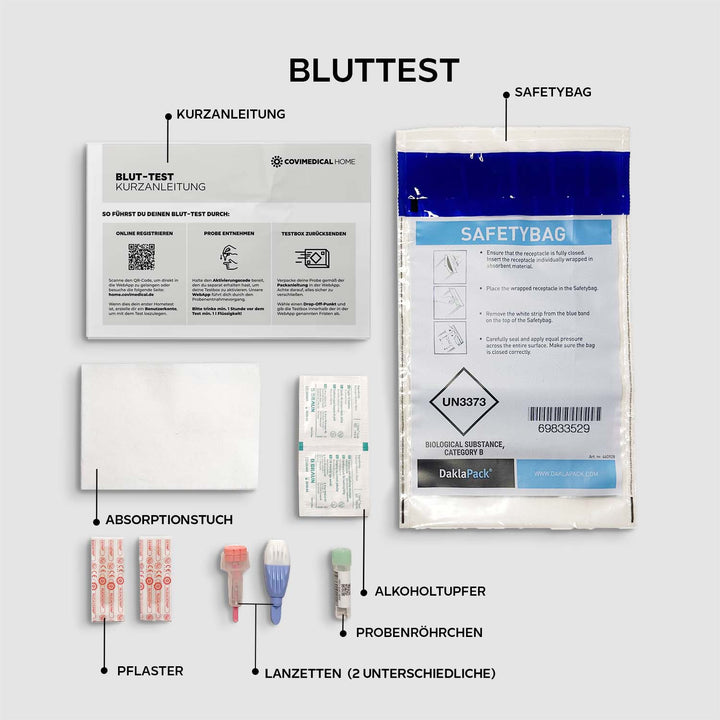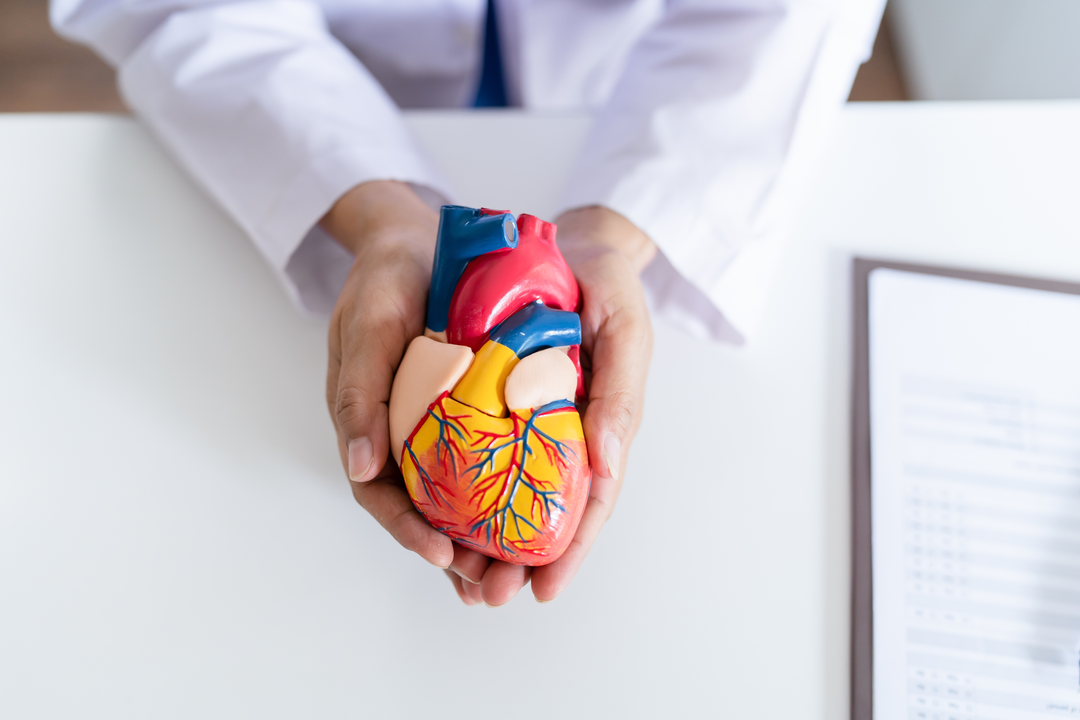This test examines your sample for 8 different liver parameters:
Aspartate aminotransferase (ASAT)
What is Aspartate Aminotransferase (ASAT)?
• Aspartate aminotransferase, also known as AST or SGOT (serum glutamate oxaloacetate transaminase), is an enzyme found in various organs, particularly the liver, heart and muscles. It plays an important role in amino acid metabolism.What function does aspartate aminotransferase (ASAT) have in the body?
• The main function of aspartate aminotransferase is to catalyze the transfer of amino groups between aspartate (an amino acid) and alpha-ketoglutarate. This process is important for energy metabolism and the synthesis of proteins.What are the normal ASAT levels in the blood?
• Normal ASAT values in the blood vary depending on the laboratory and measurement method. Typically, reference values for healthy adults are around 10-40 units per liter (U/L).Which diseases can lead to elevated ASAT levels?
• Elevated ASAT levels can indicate various diseases, including liver diseases such as hepatitis or cirrhosis, heart disease, muscle damage, acute pancreatitis and other conditions that cause damage to the mentioned organs.What symptoms are associated with elevated ASAT levels?
• Elevated ASAT levels usually do not cause specific symptoms. However, the underlying condition that led to the elevated levels may cause various symptoms such as fatigue, jaundice, abdominal pain, muscle weakness or chest pain.How are ASAT levels measured in blood?
• The ASAT values are measured through a blood test. A doctor takes a blood sample from a vein, and the serum is tested for its ASAT concentration.What is the importance of ASAT values in the diagnosis of liver diseases?
• Elevated ASAT levels may be a sign of liver damage, but alone they cannot provide a definitive diagnosis. Further tests, such as measuring other liver enzymes and imaging tests, are needed to make an accurate diagnosis.How can ASAT scores be lowered?
• Reducing elevated ASAT levels depends on the underlying cause. If the increase is due to a specific medical condition, it must be treated. A healthy lifestyle with a balanced diet, avoiding alcohol and regular exercise can also help normalize ASAT levels.Can medications affect ASAT levels?
• Yes, certain medications can temporarily increase ASAT levels. These include, for example, some anti-inflammatory medications, painkillers and medications used to treat heart problems. Your doctor should be informed of any medications you are taking to consider any potential impact on test results.Alanine aminotransferase (ALAT)
What is Alanine Aminotransferase (ALAT)?
• Alanine aminotransferase (ALAT) is an enzyme found in the body that plays an important role in the metabolism of amino acids.What function does ALAT have in the body?
• ALAT is present mainly in the liver and in smaller amounts in the muscles and kidneys. Their main function is to catalyze the transfer of alanine between different metabolic pathways.What role does ALAT play in the diagnosis of liver disease?
• An increased concentration of ALAT in the blood serum may indicate liver damage or disease. Therefore, ALAT is often used as a marker for liver dysfunction and liver disease.What symptoms can occur with elevated ALAT levels?
• If ALAT levels are elevated, symptoms such as fatigue, nausea, jaundice (yellowish discoloration of the skin and eyes), abdominal pain and unexplained weight loss may occur.What factors can lead to elevated ALAT levels?
• Elevated ALAT levels can be caused by a variety of factors, including liver diseases such as hepatitis, fatty liver disease, liver cirrhosis, as well as certain medications, alcohol consumption, and muscle injuries.How are ALAT scores measured and evaluated?
• ALAT levels are measured by a blood test. Results are reported in international units per liter (U/L). An evaluation of the ALAT values is carried out by the doctor to identify possible liver diseases or other causes.What measures can help normalize ALAT values?
• Normalization of elevated ALAT levels depends on the underlying cause. In cases of liver disease, treating the underlying disease, making lifestyle changes, avoiding alcohol and certain medications, and eating a balanced diet can help improve levels.Should you worry if ALAT levels are slightly elevated?
• Mildly elevated ALAT levels may be temporary and may not necessarily indicate a serious illness. However, it is important to determine the cause, which is why a medical examination is recommended.Are there ways to preventively control ALAT levels?
• To prevent liver disease and maintain liver health, it is recommended to maintain a healthy lifestyle, reduce alcohol consumption, eat a balanced diet, and perform regular physical activities. Regular medical exams can also help detect potential problems early.Total protein (TP)
What is total protein?
• Total protein refers to the total amount of proteins in blood serum, which consists of various protein components.Why is measuring total protein important?
• Measuring total protein provides information about the general protein status in the body and can indicate possible illnesses or nutritional problems.How is total protein measured?
• Total protein is often determined using a laboratory analysis of blood serum, which quantifies the concentration of the various proteins.What main proteins are contained in total protein?
• The main proteins in total protein are albumin and globulins, which have various functions in the body.What role does albumin play in total protein?
• Albumin helps maintain colloid osmotic pressure in the blood, transports various molecules and influences fluid balance in the body.What are Globulins?
• Globulins are a group of proteins that include antibodies (immunoglobulins) and transport and enzyme proteins.What can low total protein mean?
• Low total protein may indicate malnutrition, liver disease, kidney problems or inflammation.What factors can influence total protein?
• Factors such as diet, inflammation, infections, liver and kidney health can affect total protein.How is abnormal total protein treated?
• Treatment depends on the underlying cause. In certain diseases, targeted therapy may be required to normalize protein status
Total cholesterol
What is total cholesterol?
• Total cholesterol is a lipophilic, fat-like substance synthesized in the liver and other tissues. It is an important component of cell membranes and serves as a precursor for the synthesis of hormones and bile acids.What role does total cholesterol play in the body?
• Total cholesterol is responsible for many vital functions in the body, including the formation of cell membranes, the production of sex hormones, and supporting digestion through the production of bile acids.What role does total cholesterol play in cardiovascular disease?
• Elevated total cholesterol levels can increase the risk of cardiovascular disease because it can lead to plaque formation in the arteries. These deposits can restrict blood circulation and lead to arteriosclerosis (hardening of the arteries).Are there typical symptoms of an increased total cholesterol level?
• No, elevated total cholesterol levels usually do not cause specific symptoms. Therefore, a blood test is necessary to determine cholesterol levels.How to get total cholesterol checked?
• Total cholesterol levels can be determined through a blood test. It is recommended to check cholesterol levels regularly, especially if there is a family history or risk factors for cardiovascular disease.What values are considered a normal range for total cholesterol?
• A normal total cholesterol level is usually less than 200 milligrams per deciliter (mg/dL) or 5.2 millimoles per liter (mmol/L).How to reduce high total cholesterol levels?
• High total cholesterol levels can be reduced through a healthy diet low in saturated fats, regular physical activity and, if necessary, medication (if prescribed by a doctor).Are all types of cholesterol harmful?
• No, not all types of cholesterol are harmful. There is "good" HDL cholesterol, which helps remove excess cholesterol from the arteries, thereby reducing the risk of cardiovascular disease.What role does diet play in regulating total cholesterol levels?
• A balanced diet with plenty of fiber and unsaturated fats (e.g.B in nuts, avocado) and omega-3 fatty acids (e.g.B in fatty fish) can help regulate total cholesterol levels.Is low total cholesterol always healthy?
• Not necessarily. A total cholesterol level that is too low can also pose risks, as cholesterol is essential for certain body functions. It is important that cholesterol levels are within an appropriate and healthy range. A doctor can help determine the right level for each individual.Gamma-glutamyltransferase (gamma-GT)
What is Gamma-Glutamyltransferase (Gamma-GT)?
• Gamma-glutamyltransferase (gamma-GT) is an enzyme found in various tissues of the body, particularly the liver. It plays an important role in the transfer of gamma-glutamyl groups between molecules and is an important marker of liver function.What symptoms can indicate an increased gamma GT level in the blood?
• Typical symptoms of elevated gamma GT levels may include fatigue, jaundice (yellow discoloration of the skin and eyes), nausea, abdominal pain and itching. However, it is important to note that elevated gamma GT levels can occur even without obvious symptoms.What factors can affect elevated gamma GT levels, aside from liver disease?
• In addition to liver disease, elevated gamma GT levels can be influenced by alcohol abuse, certain medications, obesity, and other metabolic disorders.What role does gamma GT play in detecting alcohol abuse?
• Gamma GT can serve as a marker for alcohol abuse because it is often elevated with regular and excessive alcohol consumption. However, it is important to note that elevated gamma GT levels can also be caused by other factors, so the diagnosis should be carefully reviewed.How is gamma GT level in the blood measured?
• Gamma GT levels are measured by a blood test. This test is part of liver function tests and is often done along with other liver enzymes to detect possible liver problems.What measures can be taken to normalize gamma GT levels?
• Normalization of gamma GT levels depends on the underlying cause. If the elevated level is due to alcohol abuse, reducing or stopping alcohol consumption may be necessary. In other cases, it is important to treat the underlying disease.Can a healthy lifestyle improve gamma GT levels?
• A healthy lifestyle that includes regular physical activity, a balanced diet, and avoiding excessive alcohol consumption can have a positive impact on gamma GT levels and overall liver health.Alkaline phosphatase
What is alkaline phosphatase?
• Alkaline phosphatase is an enzyme found in the body that plays an important role in removing phosphate groups from various molecules.What symptoms indicate elevated alkaline phosphatase?
• Elevated alkaline phosphatase in the blood may indicate liver or bone problems. Possible symptoms include jaundice, abdominal pain or bone pain.What are the causes of increased alkaline phosphatase in the blood?
• Increased alkaline phosphatase can be caused by liver diseases (e.g. B Inflammation of the liver or liver cirrhosis) and bone diseases (e.g. B Osteomalacia, bone metastases).What symptoms can occur with a deficiency of alkaline phosphatase?
• Alkaline phosphatase deficiency is rare but can lead to bone problems such as osteomalacia. Symptoms can include bone pain, muscle weakness and bone deformation.What role does alkaline phosphatase play during pregnancy?
• A slight increase in alkaline phosphatase may be normal during pregnancy. It plays a role in fetal bone development.How is an elevated alkaline phosphatase level diagnosed?
• An elevated alkaline phosphatase level is detected by a blood test. Further tests may be performed to determine the exact cause.What measures can be taken to lower alkaline phosphatase?
• Treatment depends on the underlying cause. For liver disease, treatment will aim to improve liver function, while for bone disease, treatment will address the underlying cause.ferritin
What is ferritin and what function does it have in the body?
• Ferritin is a protein found in the cells of the body and has the ability to store iron. It serves as an intracellular iron store, allowing controlled release of iron to meet the organism's needs.What are the symptoms of a ferritin deficiency?
• Ferritin deficiency can cause symptoms such as tiredness, fatigue, pale skin, hair loss, weakness and increased susceptibility to infections. This is because low ferritin levels can indicate iron deficiency anemia.What role does ferritin play in iron overload in the body?
• Ferritin is also able to bind excess iron to protect it from harmful buildup in the body. In cases of iron overload, such as in hemochromatosis, ferritin may be elevated, which may indicate an increased iron storage process.What effects does an increased ferritin level have on the body?
• Elevated ferritin levels can indicate various diseases, such as hemochromatosis, inflammatory diseases, liver diseases or hemolytic anemias. Symptoms can include joint pain, fatigue, abdominal discomfort, and bronze skin discoloration.What is the importance of ferritin in diagnosing iron deficiency or iron overload?
• Ferritin is an important marker of iron storage status in the body. Low ferritin levels indicate iron deficiency, while high ferritin levels may indicate iron overload.What role does ferritin play in chronic inflammation?
• In inflammatory diseases, ferritin may increase as an acute phase reaction, resulting in apparently elevated ferritin levels. In such cases, however, the ferritin value cannot always indicate the actual iron storage status in the body.How can you prevent ferritin levels from becoming unbalanced?
• A healthy, balanced diet with enough iron can help prevent ferritin deficiency. Regular medical examinations can also help detect and treat iron overload or other ferritin imbalances early.iron
What are common symptoms of iron deficiency?
• Iron deficiency can manifest itself through symptoms such as tiredness, weakness, pale skin and mucous membranes, and problems with concentration.What role does iron deficiency play in hair loss?
• Iron deficiency can lead to hair loss because iron is needed for the formation of hemoglobin, which helps transport oxygen in the blood, including hair follicles.What symptoms can occur with iron overload?
• Iron overload can lead to abdominal pain, joint pain, fatigue, liver problems and a bronzed skin tone.How does iron deficiency affect the immune system?
• Iron deficiency can weaken the immune system, which can lead to increased susceptibility to infections.What symptoms can indicate iron deficiency in infants and children?
• In infants and children, signs of iron deficiency may include pallor, developmental delays, and irritability.How does iron deficiency affect the cardiovascular system?
• Iron deficiency can lead to palpitations, rapid heart rate and possibly increased stress on the cardiovascular system.What role does iron play in cognitive function?
• Iron is important for cognitive function because it plays a role in the production of neurotransmitters and oxygenation of the brain. Iron deficiency can lead to difficulty concentrating and memory problems.Which foods are rich in iron and can help correct a deficiency?
• Iron-rich foods include red meat, poultry, fish, legumes, nuts, seeds and green leafy vegetables.How can you prevent iron deficiency?
• Iron deficiency can be prevented by eating a balanced diet rich in iron-rich foods and avoiding excessive consumption of tea and coffee, as these can inhibit iron absorption.What factors can influence iron absorption in the body?
• Iron absorption can be improved by foods rich in vitamin C, such as oranges or peppers. At the same time, taking foods or supplements rich in calcium can reduce iron absorption.

























